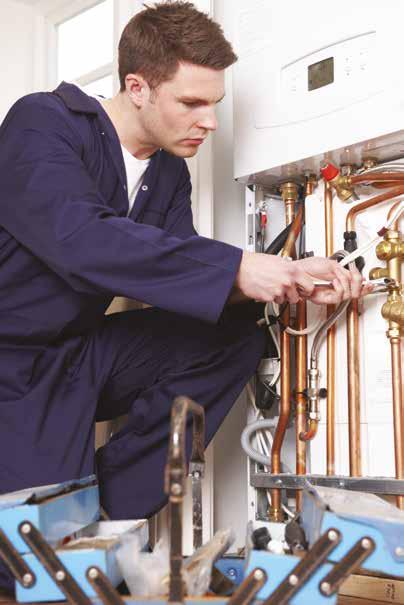
2 minute read
For now and for the future
Dave Kempster, Future Offer manager at Drayton, looks at the important role that smart heating controls will play in 2023.
F or homeowners investing in a new heating system or for those looking to make efficiencyimproving upgrades, a smart heating control can go a long way towards reducing energy use while still delivering the desired comfort levels.
According to research from BEAMA, a technologies and systems trade association, upgrading from a basic Class I room thermostat to a Class V heating control can help reduce energy usage by up to 12 per cent. Additionally, BEAMA field trials found that 6 per cent less gas was used in properties where the room thermostat and programmer were replaced with a smart programmable room thermostat, clearly showing that smart heating controls can increase efficiency.
Efficiency can be enhanced even further by installing a multi-zone smart heating system, which reduces energy use because users can heat individual rooms or zones rather than the whole house. Independent room-to-room control can reduce energy consumption by 19 per cent, research from the University of Salford found.
Smart heating controls have intuitive features to optimise their performance, such as smart modes. ‘Away’ is a quick and easy way to turn the whole heating system of, while eco modes combine optimum stop and weather compensation to learn about the thermal properties of the property. The heating then turns off early automatically to save energy, while still delivering the desired room temperature and comfort levels.
Some smart controls offer insights so that users can learn more about how they use their heating and see how much energy they’ve saved by activating smart modes. This type of insight and connectivity can save users an additional 7 per cent because it helps them make decisions about how they use their heating.
Looking at the long term
Smart controls that are compatible with a wide variety of heat sources will become increasingly important. As renewable heating becomes more commonplace, the controls that are installed alongside them will be crucial in delivering performance, as well as ensuring that the infrastructure of homes and the grid are set up to cope with the demand.
Whether or not your customer is switching to renewables right now or it’s something they’ll invest in later on, a smart heating control will help pave the way for the introduction of home energy management systems (HEMS). A HEMS is one central system that can make more decisions about when each electrical device operates – including renewable heat sources such as heat pumps – based on the users’ daily habits.
Controls that will stand the test of time won’t just offer a way to manage heating schedules but will incorporate or have the future capability to incorporate other elements such as lighting, EV and more.
Choosing the right heating control can play a large role in customer satisfaction. Plus, with many homeowners now turning to you to help make their homes more efficient, it’s worth knowing how the right technology can make a real difference. ■ www.draytoncontrols.co.uk




